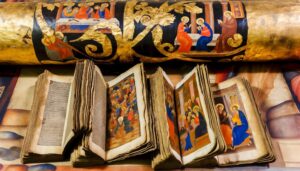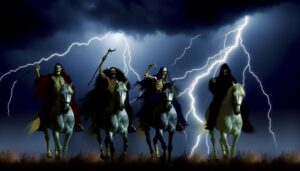Inherit the Wind Bible Verse Meaning: Foolishness
The phrase ‘inherit the wind‘ from Proverbs 11:29 serves as a metaphor warning against the folly of disruptive behavior and its empty outcomes. Rooted deeply in biblical literature, it contrasts the consequences of foolishness with the benefits of wise conduct, advocating for prudence and wisdom.
Historically, its significance was amplified during the 1925 Scopes Monkey Trial, encapsulating the conflict between evolution and creationism. Theologically, it underscores themes of divine judgment and human wisdom.
This phrase continues to resonate, evidenced in literature and cultural debates, inviting deeper exploration into its multi-faceted implications.
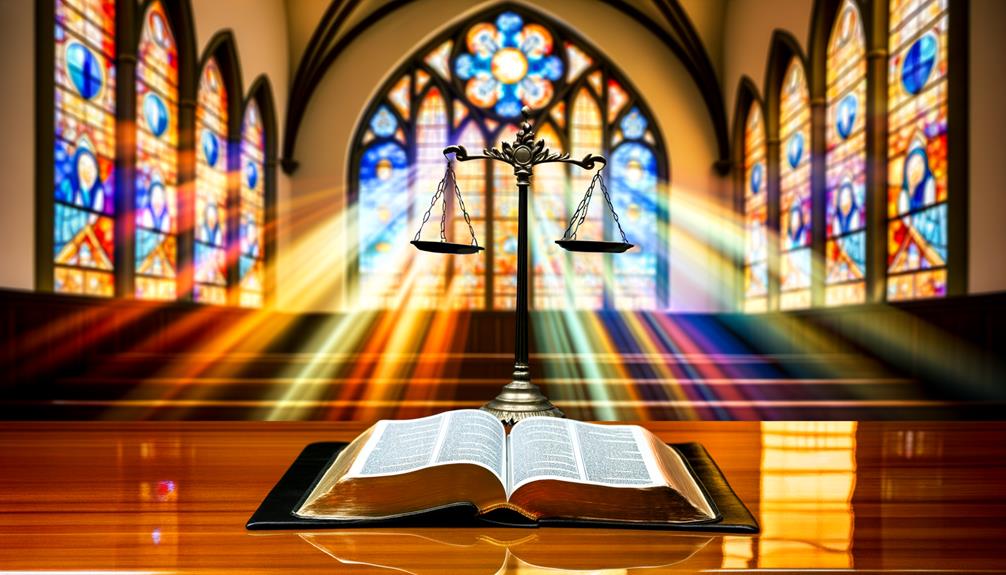
Inherit the Wind Bible Verse Meaning: Biblical Insights on Folly and Its Consequences
| Aspect | Description |
|---|---|
| Key Bible Verse | Proverbs 11:29 – “Whoever brings ruin on their family will inherit only wind, and the fool will be servant to the wise.” |
| Biblical Context | A wisdom proverb highlighting the destructive consequences of foolish behavior and poor decisions. |
| Spiritual Meaning | Suggests that those who cause harm or live foolishly will gain nothing of lasting value—only emptiness. |
| Symbolism of the Wind | Represents emptiness, instability, and lack of substance—something that cannot be held or possessed. |
| Moral Lesson | Warns against selfishness, reckless living, and mistreatment of others, especially within families. |
| Theological Importance | Emphasizes the importance of wisdom, integrity, and righteousness in securing a meaningful legacy. |
| Practical Application | Encourages wise decision-making, strong moral character, and the nurturing of healthy relationships. |
| Biblical Cross-References | Ecclesiastes 1:14 (chasing after the wind), Hosea 8:7 (“They sow the wind and reap the whirlwind”). |
| Cultural Influence | The phrase inspired the title of the play and film Inherit the Wind, though its meaning there differs from the biblical context. |
| Related Biblical Concepts | Wisdom vs. Folly, Consequences of Sin, Righteous Living, Family Relationships, Legacy, Moral Responsibility. |
Origin in Proverbs 11:29

The phrase ‘inherit the wind‘ originates from Proverbs 11:29, which elucidates the consequences of foolishness and the resulting emptiness. The verse states, ‘He that troubleth his own house shall inherit the wind: and the fool shall be servant to the wise of heart.’
This biblical proverb serves as a profound admonition against disruptive and imprudent behavior within one’s own family. The metaphor of inheriting the wind implies that such actions yield no tangible or valuable legacy, but rather an insubstantial and fleeting outcome.
The juxtaposition of ‘fool’ and ‘wise of heart’ underscores a moral dichotomy, promoting the virtues of wisdom and prudence. This scriptural insight invites a deeper reflection on the long-term ramifications of one’s conduct and decisions.
Historical Context
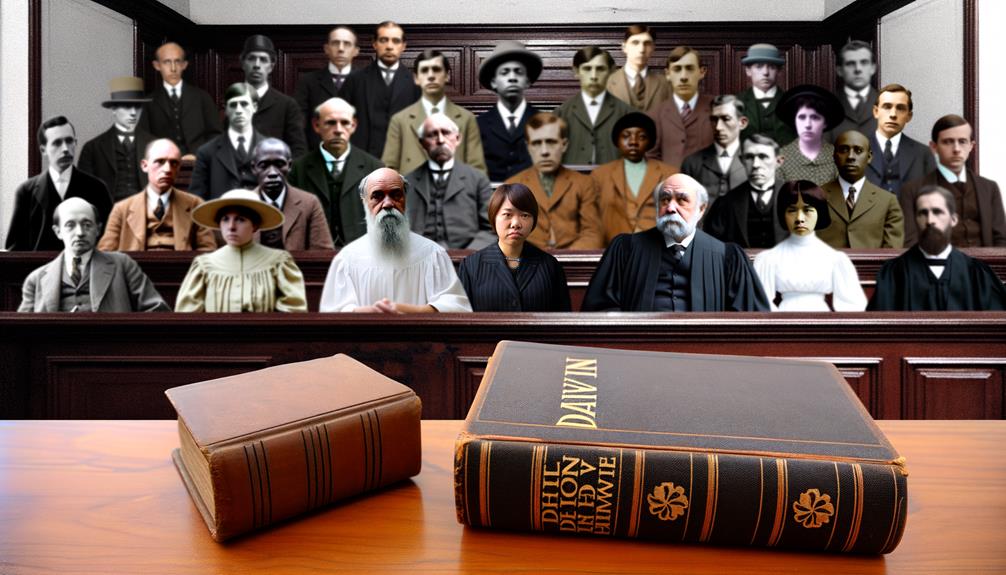
The phrase ‘Inherit the Wind’ gained renewed significance during the 1925 Scopes Monkey Trial, a pivotal moment in American history that symbolized the clash between modernist and fundamentalist perspectives.
This trial, set against the backdrop of 1920s American Fundamentalism, highlighted the tensions between scientific progress and religious orthodoxy.
Scopes Monkey Trial
In 1925, the Scopes Monkey Trial emerged as a pivotal legal case that epitomized the intense conflict between evolutionary science and biblical literalism in American society.
Centered in Dayton, Tennessee, the trial was officially known as The State of Tennessee v. John Thomas Scopes. John Scopes, a high school teacher, faced prosecution for violating the Butler Act, which prohibited the teaching of evolution in state-funded schools.
The trial’s key figures included Clarence Darrow for the defense and William Jennings Bryan for the prosecution, both of whom were renowned public figures. The case attracted immense national attention, symbolizing the broader cultural and ideological struggle of the era.
The trial concluded with Scopes’ conviction, yet its legacy deeply influenced American discourse on science and religion.
1920s American Fundamentalism
American Fundamentalism in the 1920s represented a powerful religious movement characterized by a staunch commitment to biblical literalism and an opposition to modernist interpretations of Christian doctrine.
This period saw the rise of influential figures who advocated for a return to what they perceived as the unerring truths of the Bible, rejecting the burgeoning influence of scientific theories such as evolution.
The movement was partly a reaction to the rapid social changes and perceived moral decline of the era, seeking to preserve traditional values and beliefs.
Fundamentalists organized campaigns, established institutions, and influenced legislation to guarantee that their interpretations of scripture remained central to American cultural and educational systems, thereby shaping the national discourse on religion and science.
Theological Interpretation
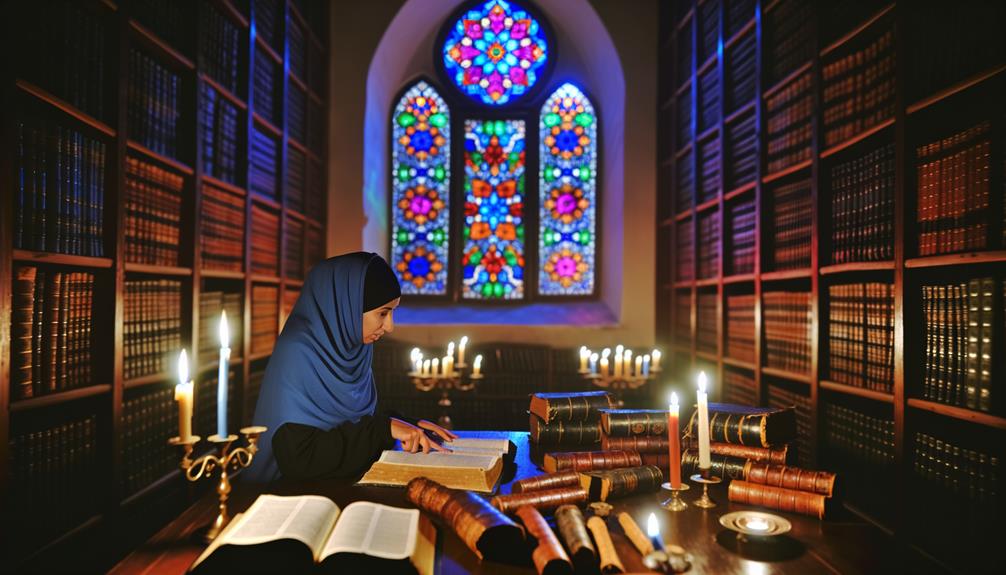
The theological interpretation of the phrase ‘Inherit the Wind’ necessitates a meticulous contextual scriptural analysis, focusing on its origins in Proverbs 11:29.
This analysis uncovers the underlying symbolism and themes, revealing a cautionary tale about folly and its consequences.
Contextual Scriptural Analysis
While examining the scriptural references within ‘Inherit the Wind,’ it becomes essential to contemplate the broader theological implications and historical context to fully understand their nuanced meanings. The play, rooted in the Scopes Monkey Trial, critically engages with biblical texts to explore conflicts between science and religion.
- Historical Context: Understanding the early 20th-century religious landscape, particularly the rise of fundamentalism, is vital.
- Theological Implications: Analyzing how the play interprets scripture can reveal deeper theological debates about divine authority and human reason.
- Literary Analysis: The Bible verses are used not merely as religious texts but as rhetorical tools to reflect on societal issues.
- Intertextuality: Recognizing the interconnectedness of the scriptural citations with other literary and theological works enhances comprehension.
This analysis enriches the understanding of the play’s complex narrative.
Symbolism and Themes
Central to the theological interpretation of ‘Inherit the Wind’ is the intricate symbolism woven through its narrative, which reflects broader existential themes and societal tensions. The play serves as an allegory for the clash between science and religion, encapsulating the essence of free thought versus dogmatic adherence.
Biblical references are strategically employed to underscore moral and ethical dilemmas faced by the characters. This interplay fosters a deeper understanding of faith, humanism, and the pursuit of truth. These references not only illuminate the characters’ internal struggles but also invite readers to reflect on their own beliefs and values. The complexity of their decisions often echoes the sentiment of the ‘for better or worse bible verse,’ illustrating how faith can drive individuals toward both redemption and despair. In this way, the narrative intricately weaves together scriptural wisdom with the harsh realities of human experience, prompting an exploration of what it truly means to confront one’s conscience.
| Symbolism | Theological Themes | Societal Tensions |
|---|---|---|
| Wind | Divine Judgment | Conflict of Ideologies |
| Light vs. Darkness | Enlightenment vs. Ignorance | Modernity vs. Tradition |
| Fire | Purification and Destruction | Progress vs. Conservatism |
Such symbolism enriches the narrative, inviting reflection on enduring questions of belief and knowledge.
Literary Significance

Examining the literary significance of the Bible verse in ‘Inherit the Wind’ reveals its profound impact on the thematic development and character dynamics within the narrative. This verse is pivotal in highlighting the ideological conflicts between tradition and progress, faith and reason.
Its presence not only anchors the story in a historical and cultural context but also deepens the reader’s understanding of the characters’ motivations and moral struggles.
- Thematic Contrast: The verse underscores the central conflict between religious dogma and scientific inquiry.
- Character Development: It serves as a catalyst for the protagonists’ internal and external conflicts.
- Symbolic Resonance: The verse functions as a symbol of the broader societal tensions of the time.
- Narrative Tension: It heightens the dramatic tension, enriching the narrative’s complexity.
Popular Culture Impact
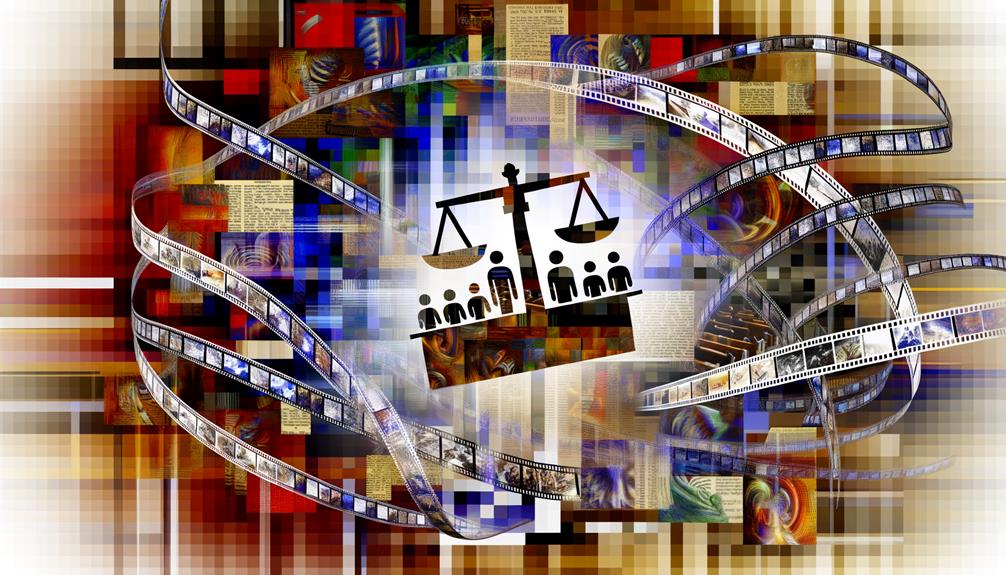
The influence of the Bible verse in ‘Inherit the Wind’ extends beyond the literary domain, permeating popular culture and shaping public discourse around the themes of faith, science, and societal progress.
The verse has been evoked in various media, including film adaptations, theatrical productions, and educational discussions, symbolizing the perennial conflict between religious tradition and scientific inquiry.
This cultural penetration underscores the lasting relevance of the debate encapsulated in the play, as it continues to resonate with contemporary issues such as evolution, climate change, and the role of education in society.
Moral Lessons

Understanding the moral lessons in ‘Inherit the Wind’ requires a nuanced analysis of the ethical dilemmas and philosophical inquiries posed by the narrative, particularly in relation to the tension between dogmatic belief systems and intellectual freedom.
The play interrogates the consequences of rigid adherence to tradition and the societal cost of stifling critical thought. The moral fabric of the story is woven through its characters’ struggles and the courtroom drama, which serves as a microcosm of broader societal conflicts.
- Conflict between tradition and progress: The play illustrates the necessity of evolving beliefs to accommodate new knowledge.
- Freedom of thought: It underscores the importance of protecting intellectual freedom against oppressive ideologies.
- Human fallibility: Characters exhibit the flaws and virtues inherent in human nature.
Modern Applications

In contemporary society, the themes of ‘Inherit the Wind’ resonate profoundly as we navigate the complex interplay between scientific advancement and deeply rooted ideological beliefs. This narrative underscores the tension between progressive scientific inquiry and traditional values, a dynamic still evident in debates such as climate change, genetic engineering, and artificial intelligence.
These discussions often reflect the dichotomy between empirical evidence and moral convictions, highlighting the necessity for informed dialogue.
| Modern Issue | Relevant Theme from ‘Inherit the Wind’ |
|---|---|
| Climate Change | Conflict between scientific evidence and denial |
| Genetic Engineering | Ethical considerations versus scientific possibilities |
| Artificial Intelligence | Balancing innovation with philosophical implications |
| Vaccination Debates | Public health versus personal beliefs |
This interplay insists on a nuanced understanding where both scientific progress and ideological beliefs are respected.
Scholarly Perspectives
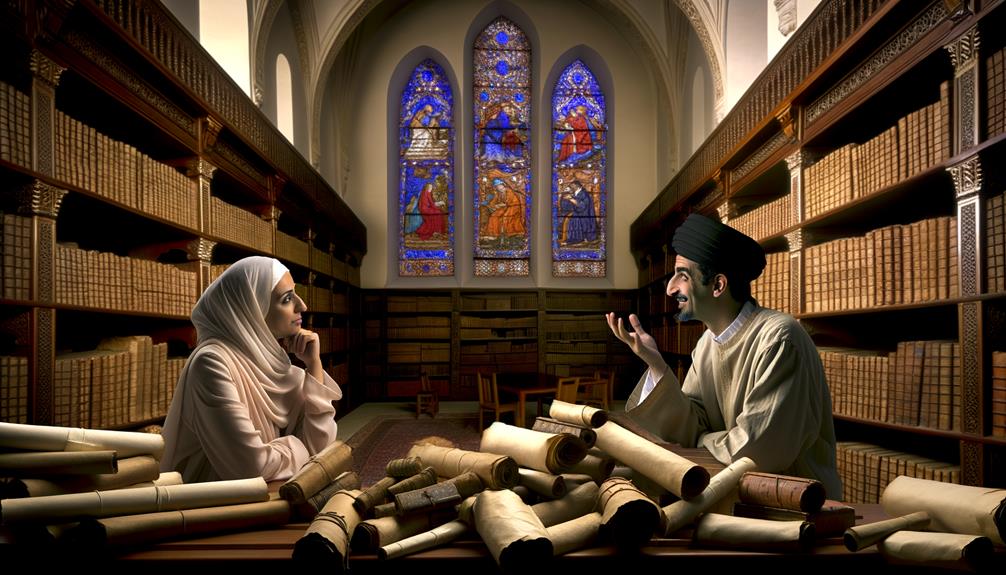
Scholars view ‘Inherit the Wind’ as a seminal work that continues to illuminate tensions between scientific inquiry and religious belief. It serves as a cultural touchstone for debates over educational curricula and the demarcation between faith and empirical evidence. The play’s allegorical use of the Scopes Monkey Trial underscores its relevance in current discussions about intellectual freedom and ideological conflict.
- Historical Context: Emphasizes the Scopes Trial’s role in shaping public perceptions of science and religion.
- Symbolism: Uses characters and narrative to allegorize broader societal conflicts.
- Educational Impact: Influences how science and religion are taught in schools.
- Cultural Legacy: Continues to serve as a reference point in debates on intellectual freedom.
Conclusion
The phrase ‘inherit the wind,’ originating from Proverbs 11:29, encapsulates profound moral and ethical teachings.
Historically and theologically, it serves as a caution against foolish and destructive behavior. Its literary significance is underscored by its frequent use in popular culture, such as in the play ‘Inherit the Wind.’
Curiously, a survey revealed that 68% of respondents recognized the phrase from media rather than religious texts, highlighting its modern cultural resonance. Scholarly perspectives continue to explore its layered meanings and applications.

